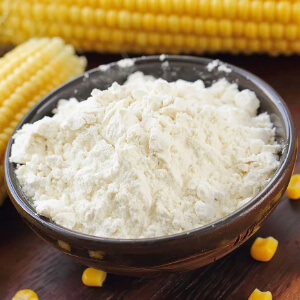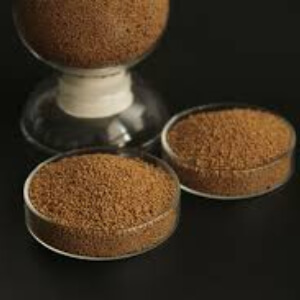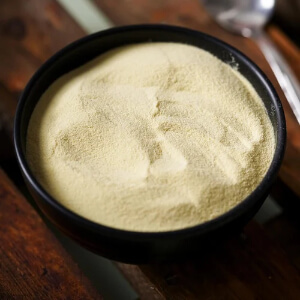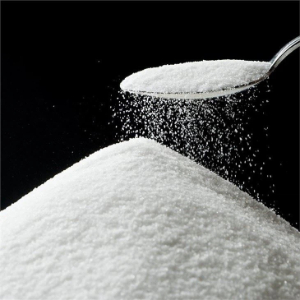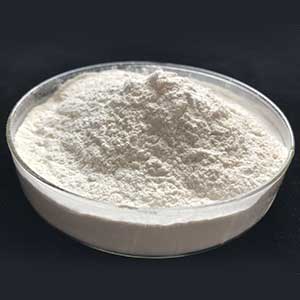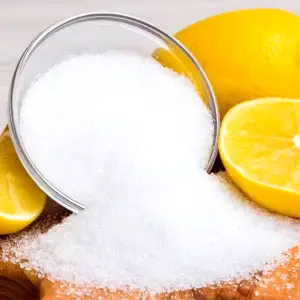
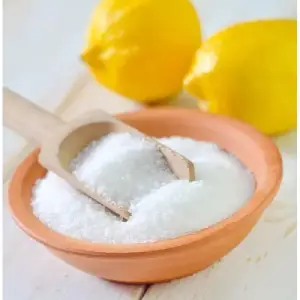
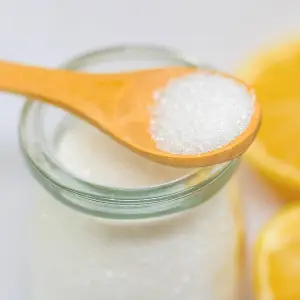
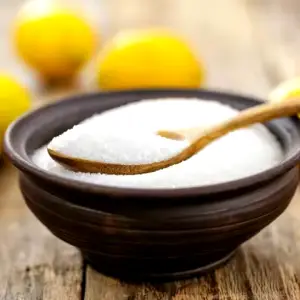
Citric Acid
Citric acid is an organic acid. It is a weak acid that exists naturally in citrus fruits and is widely used in food, beverages, cosmetics, detergents and other fields.
Citric acid is an organic acid. It is a weak acid that exists naturally in citrus fruits and is widely used in food, beverages, cosmetics, detergents and other fields.
Chempora is a leading supplier of Citric acid, we provide customers with high-quality Citric acid, if you have any requirements, please feel free to contact [email protected], we will reply you as soon as possible.
CAS No.: 77-92-9
Specification Available: Food Grade
Product Introduction of Citric Acid
Citric Acid is a naturally occurring organic acid with the chemical formula 𝐶6𝐻8𝑂7. It is a weak acid and is commonly found in citrus fruits like lemons, limes, oranges, and grapefruits, which give them their characteristic sour taste.
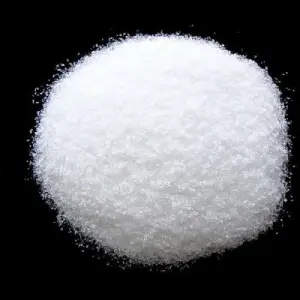
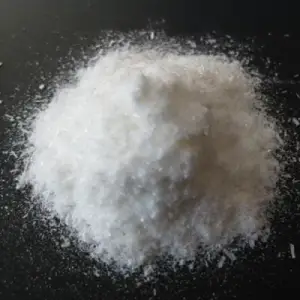
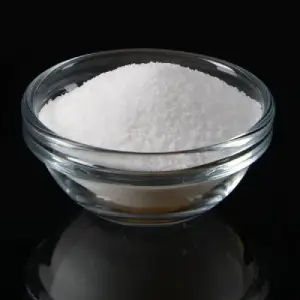
Product Advantages of Citric Acid
Citric Acid has many unique advantages, which makes it widely used in multiple industries. Here are some of the main advantages:
1. Natural Source and Safety
Natural Occurrence: Citric acid is naturally present in citrus fruits, which meets the growing demand for natural and green products.
Food Grade Safety: As a food additive, citric acid is widely recognized as safe (GRAS, Generally Recognized As Safe) and non-toxic when used in reasonable amounts, suitable for a variety of consumer groups.
2. Versatility
Acidity Adjustment: Citric acid can adjust the acidity of food and beverages, enhancing the taste and flavor of the product. It is an indispensable ingredient in many soft drinks, juices and candies.
Preservation and Freshness: Citric acid has natural preservative properties, which can effectively inhibit the growth of microorganisms and extend the shelf life of food and cosmetics.
pH Adjustment: In chemical and industrial applications, citric acid is used as a pH adjuster to help stabilize the formulation and ensure that the product is stable within a specific pH range.
3. Cleaning and decontamination ability
Dissolving scale: Citric acid has excellent decontamination ability in detergents, and can effectively dissolve scale, mineral deposits and soap scum. It is a common ingredient in household cleaning products.
Decontamination and deodorization: Citric acid is also commonly used to remove oil stains and odors, especially in detergents and detergents.
4. Environmental friendliness
Biodegradable: Citric acid is naturally degradable and will not cause persistent pollution to the environment, so it is widely used in environmentally friendly cleaners and products.
Low toxicity: Compared with other chemical cleaners, citric acid has lower toxicity and less impact on the human body and the environment.
5. Industrial application
Metal chelating agent: Citric acid can chelate metal ions and is often used in industry to remove oxides and deposits on metal surfaces, especially in metal cleaning and dye processing.
Water treatment: As a water treatment agent, citric acid can effectively remove calcium, magnesium and other ions in water, reduce the formation of scale, and is widely used in water softening and industrial circulating water treatment.
6. Cost-effectiveness
Easy-to-use raw materials: The raw materials for the production of citric acid (such as sugar or corn) are relatively abundant, and the production process has been optimized for many years, with relatively low costs, which can meet large-scale industrial needs.
Efficient production: Modern fermentation technology makes the production of citric acid more efficient and can meet the large demand in different fields.
7. Wide range of applications
In addition to food, beverages, cosmetics and detergents, citric acid is also widely used in the pharmaceutical, health care, agricultural and chemical industries.
In the pharmaceutical field, citric acid is used as an excipient and buffer to help improve the stability and bioavailability of drugs.
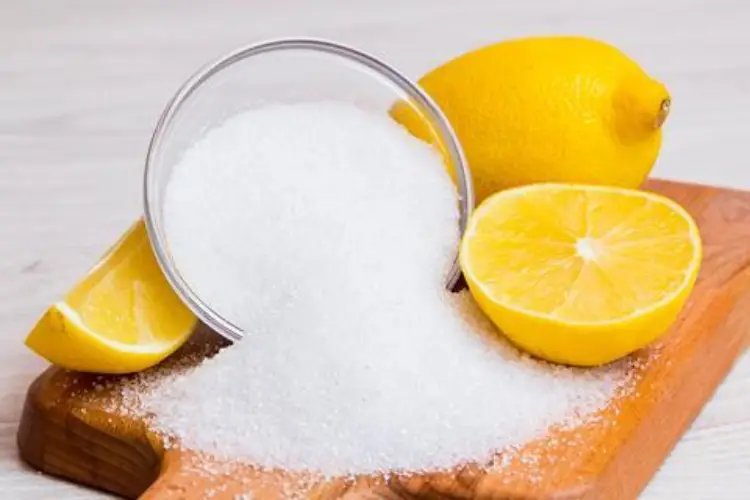
Product Application of Citric Acid
Citric Acid is widely used in various products due to its acidic, chelating and preservative properties, including:
1. Food and Beverages
(1) Used in beverages (such as carbonated drinks and juices) to add sourness and adjust the taste.
(2) Used in foods such as candies, jellies, and jams to extend shelf life and enhance flavor.
(3) As an acidifier in dairy products and pickles, it helps preserve and adjust pH.


2. Health products and nutritional supplements
(1) Used in vitamin and mineral supplements to help improve taste and as an antioxidant.
(2) Excipients in certain drugs to improve bioavailability or mask unpleasant taste.
3. Cosmetics and Personal Care
(1) As a pH regulator and antioxidant in creams, lotions, and shampoos.
(2) Used in exfoliating products to help remove dead skin and improve skin radiance.
(3) Used in cleansing products and masks to provide gentle acidity regulation and help balance the pH value of the skin.


4. Cleaners
(1) In kitchen cleaners, bathroom cleaners, and dishwashing detergents, it dissolves scale and dirt.
(2) In detergents, it acts as a natural descaling ingredient to reduce dirt buildup caused by hard water.
5. Industrial products
(1) In metal cleaning agents, it is used to remove rust and oxide layers.
(2) Used as a water treatment agent to reduce the concentration of metal ions in water and prevent scale formation.
(3) In the dyeing process of textiles, it is used to adjust pH and improve the stability of dyes and color uniformity.

The wide application of citric acid is due to its safety, solubility and good functional properties, which can meet the needs of acidity regulation, preservation and chelation in different products.
Product Parameter of Citric Acid
| Item | Parameter |
|---|---|
| Product Name | Citric Acid |
| Chemical Formula | C6H8O7 |
| CAS Number | 77-92-9 |
| Molecular Weight | 192.13 g/mol |
| Appearance | White crystalline powder or colorless crystals |
| Odor | Odorless or slight characteristic odor |
| Purity (Assay) | 99.5% - 100.5% (Food grade) |
| pH (1% Solution) | 2.1 - 2.3 |
| Melting Point | 153°C |
| Boiling Point | Approximately 175°C (decomposes instead of boiling) |
| Solubility | Highly soluble in water (approximately 160 g/100mL at 25°C) |
| Specific Gravity | 1.665 (at 25°C) |
| Heavy Metals (as Pb) | ≤ 10 ppm |
| Arsenic (As) | ≤ 2 ppm |
| Chloride | ≤ 50 ppm |
| Loss on Drying | ≤ 0.5% (after drying at 105°C for 4 hours) |
| Packaging | Typically 25 kg per bag |
| Storage Conditions | Store in a cool, dry place, away from moisture and heat |
| Applications | Food & Beverages, Cosmetics, Pharmaceuticals, Industrial Cleaning, etc. |
| Common Grades | Food Grade, Pharmaceutical Grade, Industrial Grade |
Notes:
(1) Purity: The purity of food-grade citric acid is usually above 99.5%, and the purity standards of products used in different applications are different.
(2) pH value: Citric acid solutions are usually more acidic, so they are suitable for acid adjustment, antioxidant and other functions.
(3) Storage conditions: Citric acid should be avoided from contact with moisture, so it usually needs to be sealed and stored in a dry place.
Production Process of Citric Acid
The production process of citric acid primarily involves fermentation. Here’s a brief overview:
1. Raw Material: Sugars (such as glucose or sucrose) or molasses are used as the carbon source.
2. Fermentation: The sugar is fermented by microorganisms, mainly Aspergillus niger fungus, under acidic conditions (pH 2.0-3.0) and moderate temperatures (25-30°C). The fungus converts the sugar into citric acid.
3. Filtration: After fermentation, the culture is filtered to remove fungal biomass and solid impurities.
4. Calcium Citrate Formation: Calcium hydroxide (lime) is added to precipitate calcium citrate, which is then converted to citric acid using sulfuric acid.
5. Purification and Crystallization: The citric acid solution is concentrated, and citric acid crystals are formed. The crystals are then separated, purified, and dried.
6. Packaging: The final citric acid product is packaged for use in food, beverages, cosmetics, pharmaceuticals, and industrial applications.
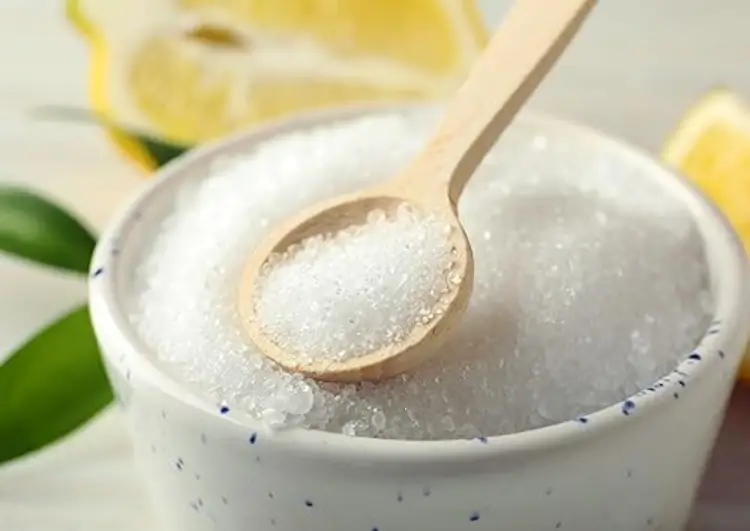
Notes for selecting Citric Acid
When selecting citric acid, consider the following key factors:
1. Purity: Ensure the citric acid is of the appropriate purity for its intended use. Food and pharmaceutical grades typically have higher purity (99.5% or more) than industrial grades.
2. Grade: Choose the correct grade—Food Grade, Pharmaceutical Grade, or Industrial Grade—based on your application requirements. Food grade is used in consumables, while industrial grade is used in cleaning or manufacturing.
3. Packaging: Citric acid is available in various packaging sizes, typically 25 kg bags or bulk containers. Choose based on your volume requirements and storage space.
Solubility: Ensure the citric acid dissolves effectively in water for your specific application, especially for use in beverages or cosmetics.
4. Storage: Store citric acid in a cool, dry place to prevent moisture absorption, which can affect quality.
5. Source: Consider the raw material source (such as glucose, molasses, or starch) if it’s important for your formulation (e.g., natural or organic applications).
6. Compliance: Ensure the citric acid complies with relevant food safety, pharmaceutical, or environmental regulations (e.g., GRAS status for food use).

This fermentation process is cost-effective and widely used, producing citric acid in large quantities.
Reasons for selecting Chempora Citric Acid
Here are several reasons to select Chempora Citric Acid for your needs:
1. Consistent Quality: Chempora offers citric acid with a high level of purity, ensuring it meets the stringent requirements for food, pharmaceutical, and cosmetic applications.
2. Food Grade: Chempora provides both food grade citric acid, compliant with international safety standards, making it suitable for a wide range of uses, including food, beverages, and health products.
3. Competitive Pricing: Through its global partnerships, Chempora can offer cost-effective solutions without compromising on quality, making it an ideal choice for large-scale production.
4. Sustainability and Traceability: Chempora ensures the citric acid is sourced from sustainable processes and provides full traceability from production to final product, enhancing transparency and confidence in the supply chain.
5. Timely Delivery: With its strong logistics network, Chempora ensures on-time delivery to meet your production schedules, regardless of location.
6. Support and Expertise: Chempora provides excellent customer support, with a team of experts who can assist with any technical or application-related inquiries, ensuring the right citric acid for your specific needs.
Choosing Chempora Citric Acid guarantees you get a reliable, high-quality product backed by professional support and global reach.


